There are over 65,000 public libraries in the EU, and over 100 million people visit them every year.
These numbers always feature in any advocacy message we, at Public Libraries 2030, deliver to policymakers. They demonstrate the potential and reach of Europe’s libraries – and that statistics matter!
In this week’s post the three parties that partnered together to bring the 2019 Libraries & Skills Fact Sheets to fruition will discuss their perspectives on the great initiatives such as Generation Code and the 2019 fact sheets. Public Libraries 2030, Princh and the International Federation of Library Associations and Institutions (IFLA) will all share text in this post.
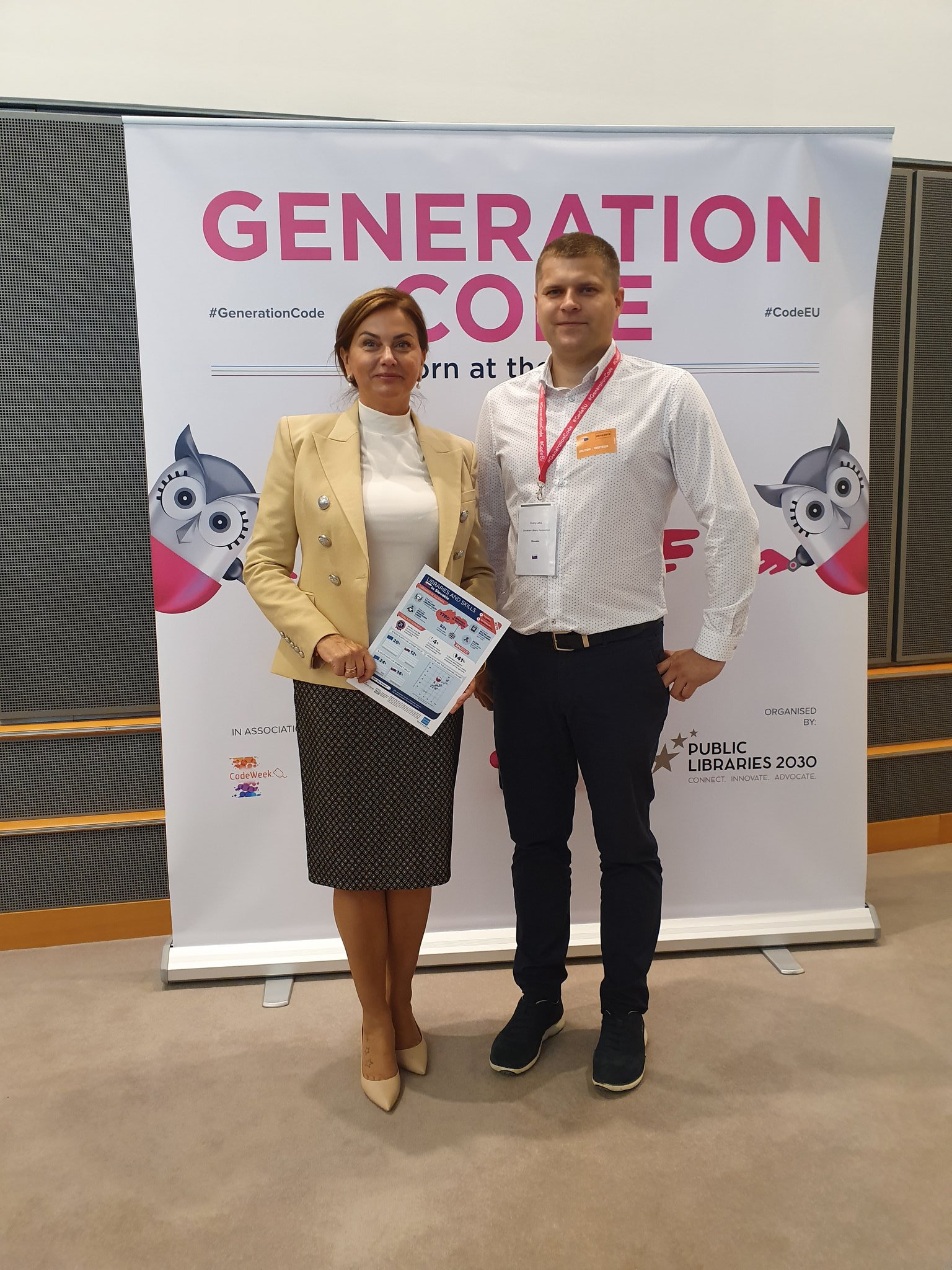
Generation Code Event on October 8, 2019
Library statistics and advocacy
Policy makers like numbers – numbers help them to contextualise but also offer some kind of legitimacy to the messages they are hearing. This is why it’s so important for us to have numbers about libraries in our back pocket.
But when it comes to institutions like libraries – we know that numbers don’t tell the full story. How much can we know from the number of libraries, or users, or books borrowed? What we really want to show is how libraries impact their communities: knowing how many libraries offer free internet access is a good indicator of how libraries are helping people to get online in an increasingly digital world – but knowing how many people were able to get a job by applying online in a library – or even better, how poverty levels improved and people felt more included in their communities because they managed to get a job – that’s gold dust. But it’s incredibly difficult to get hold of.
Much of the important work libraries do is hard to capture: when a librarian asks an elderly patron how their day is going and makes them feel less lonely; or when they open up their spaces for everyone and a group of students set up a citizen science project… The difficulty is that the biggest added value of libraries is not only impossible to measure – often library staff themselves don’t even realise they are doing it.
08 Oct 2019 – Brussels, Belgium – Event “Generation Code: Born at the Library” 2019. © Bernal Revert/ BR&
Libraries & Skills Fact Sheets
We first launched the Libraries & Skills fact sheets in 2016. In our experience advocating for libraries with EU policymakers, while stories and examples go a long way, politicians consistently asked for data to back up our claims. With serious data, we can make the case for libraries to be right at the heart of key national policies and strategies for economic, social and cultural development. So, we took up the challenge – and went one step further.
A key focus of our advocacy messaging has been around digital upskilling (a key EU priority and an area in which we have seen many amazing libraries taking a lead) – and so we decided to highlight the connection between libraries and digital skills by lining up the data from both sides.
It is perhaps to be expected that countries of different sizes, structures, incomes and cultures measure things differently – but it is striking to see the difference in information collected about libraries across the different EU member states (as you can see when browsing through the fact sheets).
The EU collects data about digital skills (alongside plenty of other digital indicators) annually in its Digital Economy and Society Index (DESI). We chose to present the DESI data for every EU member state alongside data about that country’s libraries. We worked directly with national library associations and related organisations in every member state to collate and present as much data as possible – and in a clear, eye-catching way.
This year we updated and re-launched the Libraries & Skills Fact Sheets for 2019, working in partnership with Princh and the IFLA Library Map of the World (see further down for their take on the project!)
“Every European needs digital skills to thrive – Libraries play a crucial role in this”
Commisioner @GabrielMariya at the closing ceremony of #GenerationCode #MEPLibraryLovers #EUCodeWeek#OpenFuture #DigitalFuture #DigitalSociety #Digitalinclusion pic.twitter.com/0AtArznJKe
— PublicLibraries2030 (@LibrariesEU) October 8, 2019
Advocacy in action! Generation Code: Born at the Library
Our recent event, Generation Code: Born at the Library, was a perfect opportunity to roll out the 2019 fact sheets. Taking place at the European Parliament in Brussels during EU Code Week, Generation Code features an exhibition which showcases how public libraries are embracing the digital age, with exhibits from a dozen libraries in Europe, as well as a “Meet & Greet” session, in which over 70 library representatives get together with Members of European Parliament (we counted almost 80 in total!) in their country to discuss the challenges and opportunities facing their libraries.
The fact sheets were a fantastic advocacy tool to share with MEPs, reinforcing our message about libraries’ potential in developing digital skills and offering opportunities to experiment with technology, as well as pinpointing the situation in each EU member state.
What next?
All of the Libraries & Skills 2019 fact sheets are available to download for free on the PL2030 and MEP Library Lovers websites. We encourage all library stakeholders to make use of the fact sheets however works best to support your advocacy efforts. Please do get in touch with Hannah from PL2030 (hannah@pl2030.eu) with any questions and suggestions, or if you would like a translated copy of your country’s fact sheet (we’re working on it!).
We are excited to see the Libraries & Skills Factsheets initiative grow – for example, we are supporting the fantastic Library Aid Africa project to run a pilot project to launch the fact sheets in Nigeria, with an ambition to expand to other African countries in the future.
The Princh perspective
Partnering with Public Libraries 2030 was a great experience. We at Princh were happy to partner with them and help create the 2019 factsheets. The partnership between us came together quite easily during a conversation at the NEXT library conference in Aarhus, Denmark. The support and love of libraries was apparent on both sides. Our motivation to work on this project came from our strong belief of the positive impact libraries provide to their users and the understanding that libraries play an important and significant role in communities.
So, it was an exciting opportunity to join this initiative that spreads awareness for libraries across the EU. Princh is the only printing solution designed specifically for – and with – libraries and we continue to be involved in library advocacy globally. In our eyes, part of providing the best library printing solution available is also contributing our voice to advocate for libraries all over the world.
The creation of the 2019 Libraries and Skills Fact Sheets is a great resource that shows the impact of libraries in a fun and easy to read way. Make sure to read, share and provide feedback on the factsheets as soon as you can.
If you would like to contact us to learn more about Princh and how we can innovate your library’s printing solution, you can contact us here.
We are now offering a new wireless printing solution!#Princh, is user-friendly and offers the possibility to print and pay from mobile devices, laptops and library PCs. Just download the free Princh app from the App Store, Google Play, or by accessing https://t.co/fcmdnoq4g5 pic.twitter.com/FzWCviRbny
— Amherst Town Library (@AmherstTownLib) April 16, 2019
IFLA’s Library Map of the World
We’re thrilled at IFLA to see data from the Library Map of the World helping to win support for libraries at the European Parliament. The Map is the most comprehensive, most global effort out there to bring key facts and figures about libraries together with data about wider educational, social and economic performance. It opens the way to exciting new insights into the connections between thriving libraries, and thriving individuals and communities.
Our contributors in library associations are doing great work in collecting, sharing and of course now, finding ways to use this data. But in turn, they rely on governments dedicating the necessary effort to produce and publish statistics about libraries and their impacts. Without this, it is impossible for decision-makers – from the global to the European to the local levels – to understand fully the ability of libraries to power change.
So, at IFLA, we’re looking forward both to developing the Library Map of the World as the key source of information on libraries globally, and then to working with both governments and members to turn this information about libraries into support for them!
You can check out the map online now: https://librarymap.ifla.org/.
8 Oct 2019 – Brussels, Belgium – Event “Generation Code: Born at the Library” 2019. © Bernal Revert/ BR&U
Contact
To learn more about Public Libraries 2030, Princh and IFLA check them out on Twitter at:
Public Libraries: @LibrariesEU
Princh: @PrinchApp
IFLA: @IFLA
Recent posts
Green Libraries: How Sustainable Design is Shaping the Future of Public Libraries
In this week's Princh Library Blog post, recurring guest writer Sam L. Bowman discusses an ever so important topic: sustainable design and [...]
Librarians Supporting Digital Literacy in the Community
In this week's Princh Library Blog, Nina Grant covers why digital literacy is important, the variety of ways in which librarians are supporting [...]


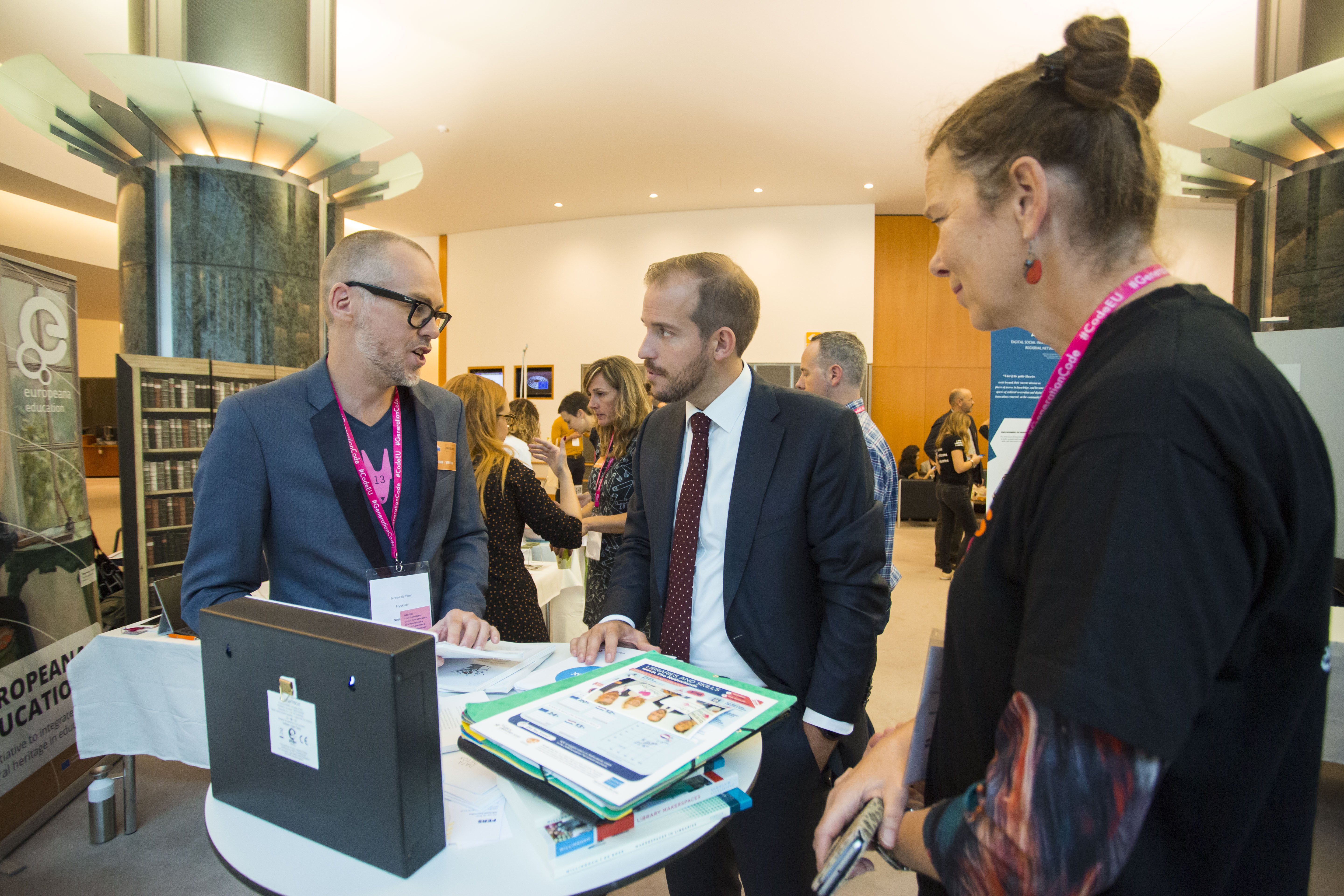
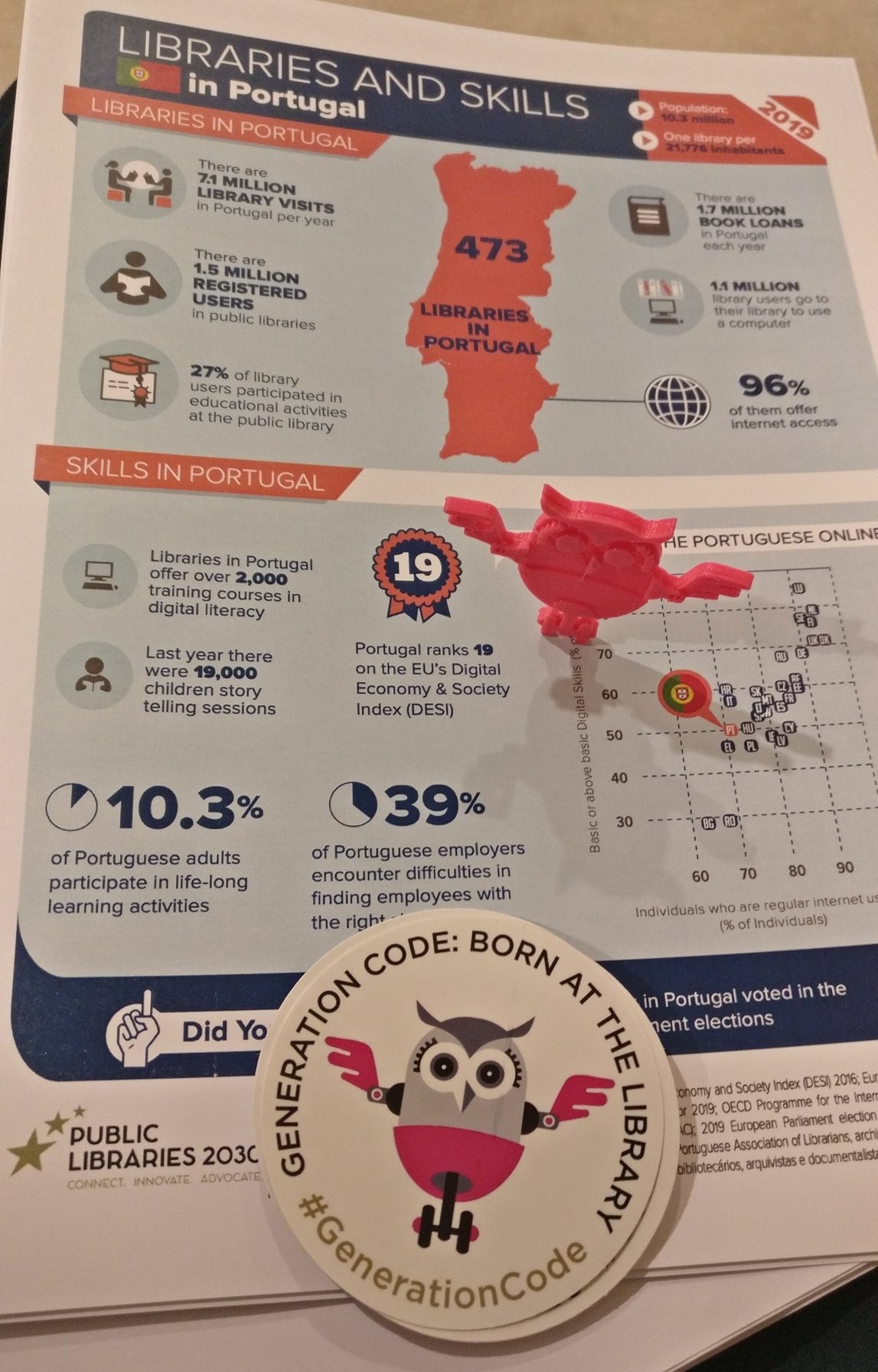
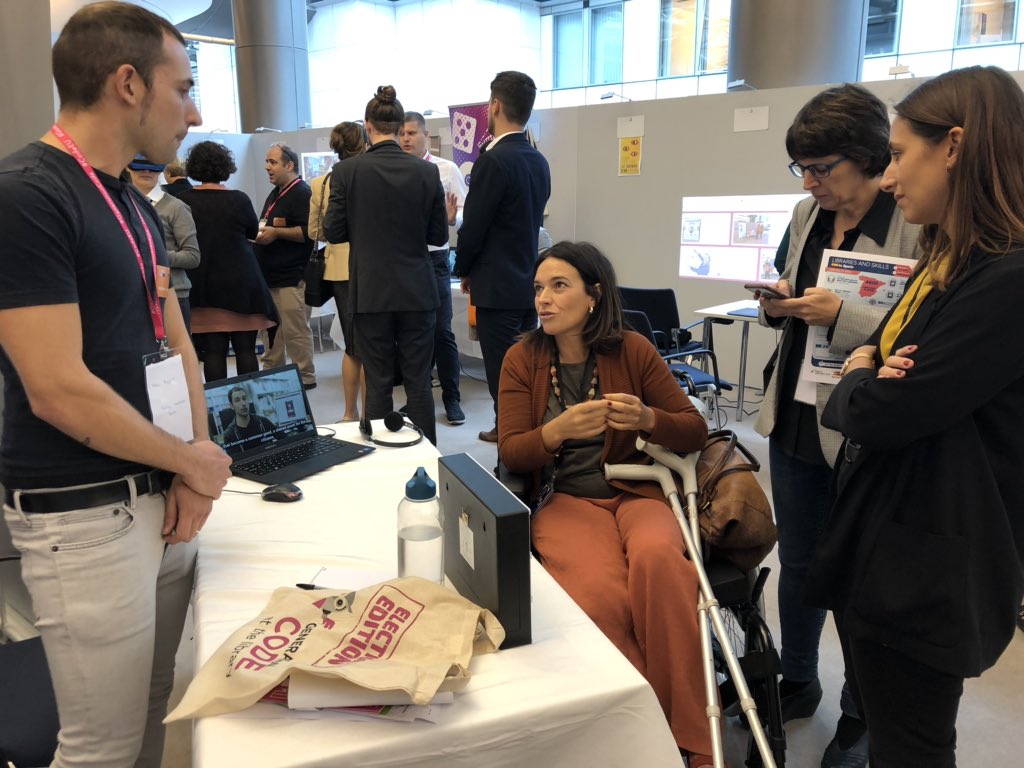

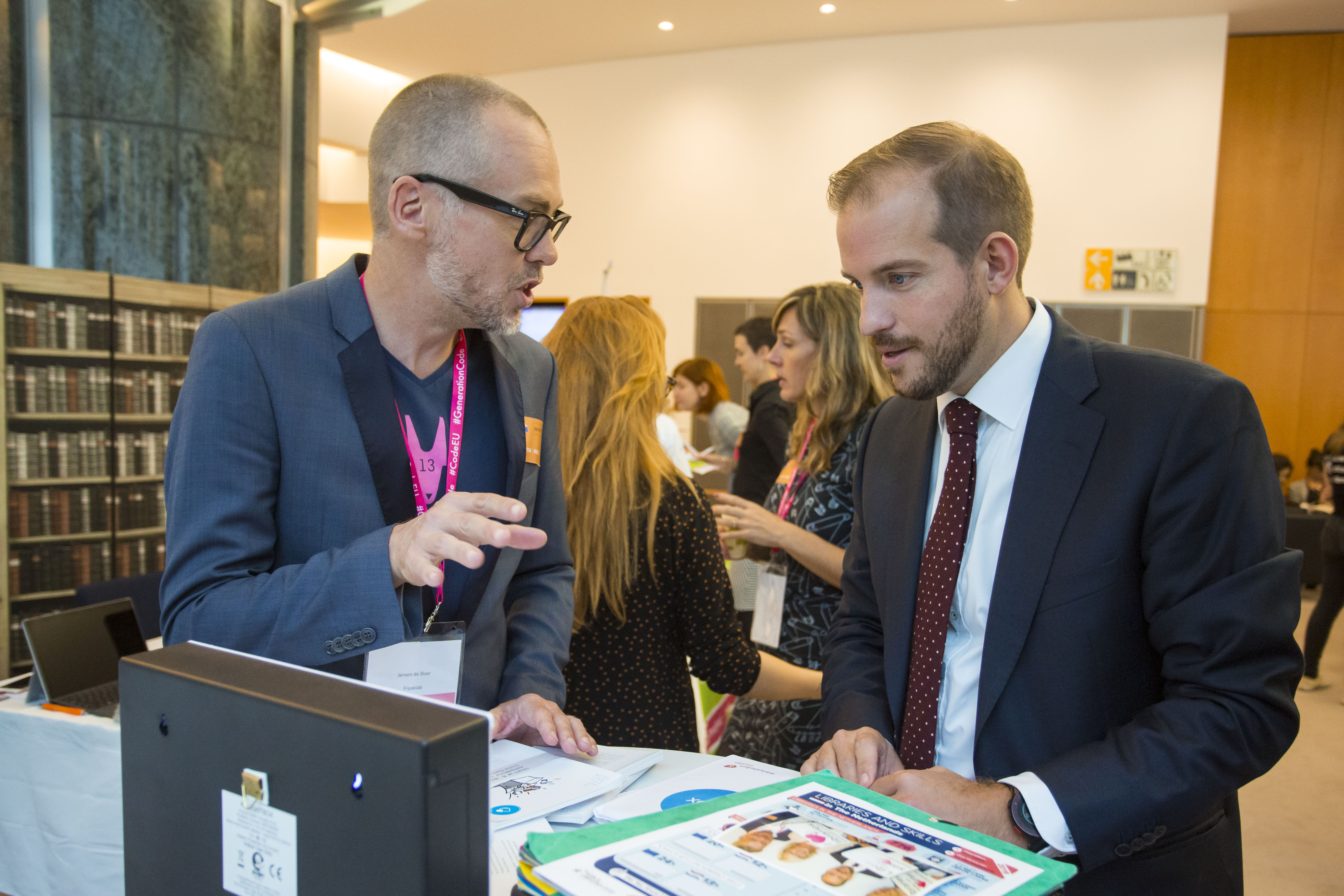
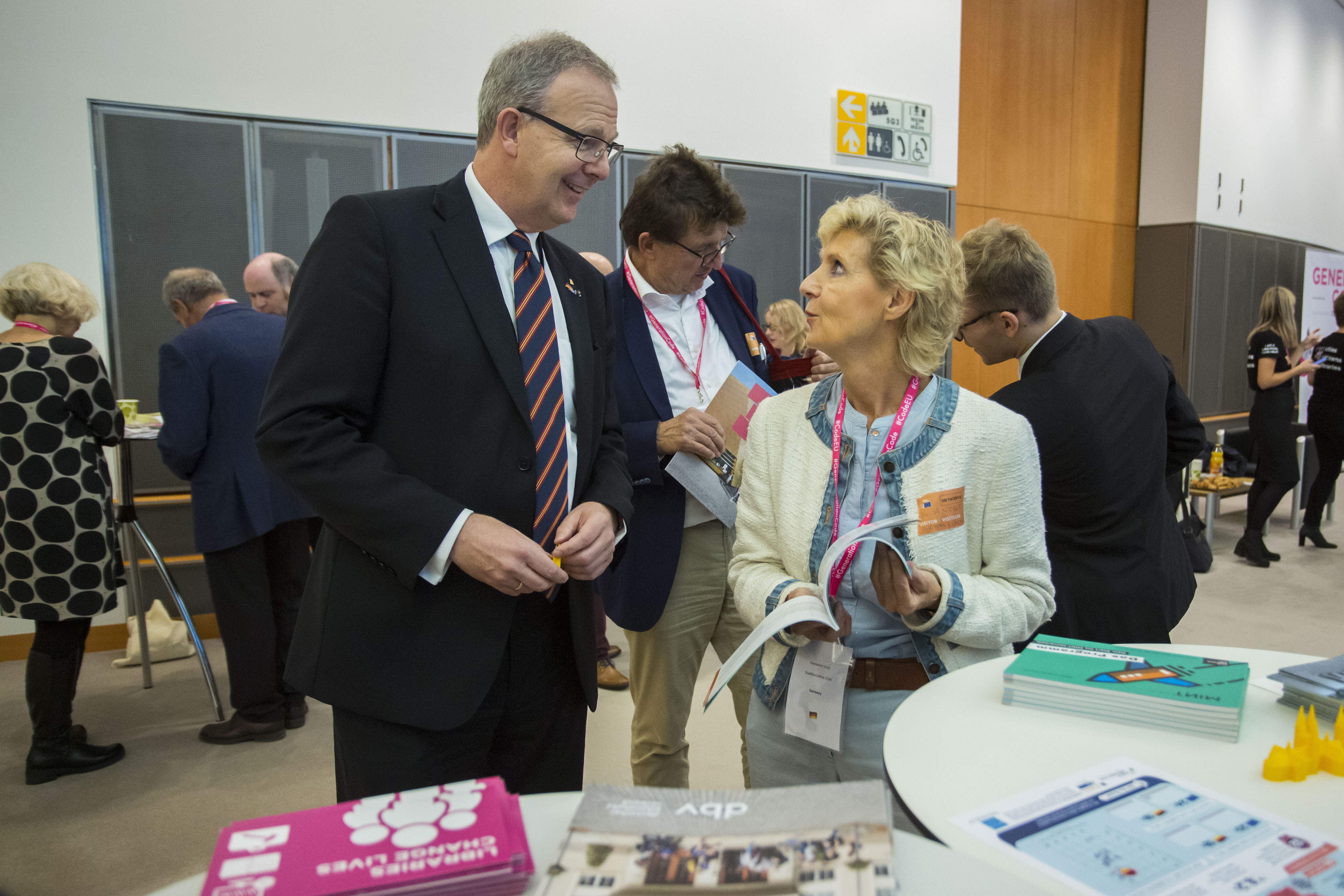
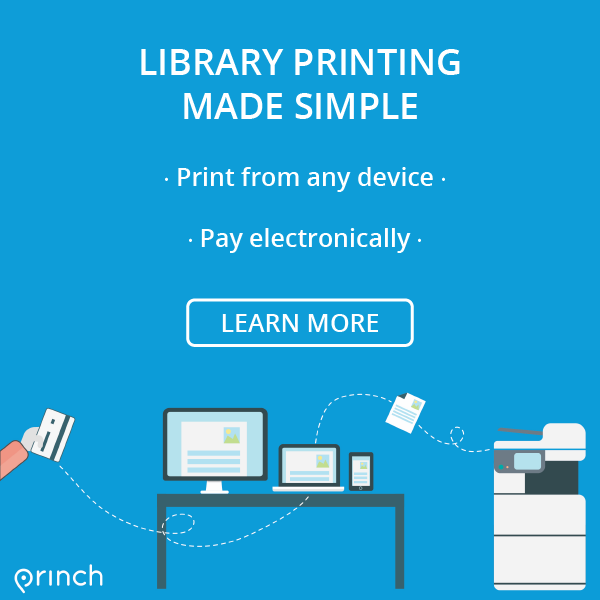

Leave A Comment